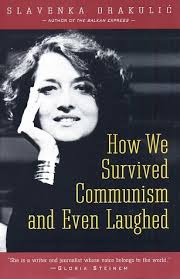Green Street Hooligans (2005) references the influence of governmental video surveillance on crime in Britain, and also raises the issue of snooping, counter-snooping and data retention by private persons and media.
Gattaca (1997) - the notion of DNA as personal data is central to this an American dream come true story. Parallels can be drawn to the next Ethan Hawke movie, the Great Expectations (1998). During that decade, Uma Turman used to be way cooler than pre-LOTR Gwyneth Palthrow, which is another advantage for Gattaca.
Addicted to Love (1997) is a cheesy love story, enjoyed at the time by kind of people who later got hooked on Sex and the City. The movie has nothing to do with Robert Palmer. Apart from "romantic" thrills for masochists who basically get served the lesson that you love the one you get stuck with, this "lemonade" also raises issues such as is it ethical for an astronomer to use his telescope-handling skills to spy on the former girlfriend. And yes: Meg Ryan. Hey, at least it's not Julia Roberts!
Rear Window (1954) spying on your neighbors can sometimes benefit the society, including them. Remember that when you realize you've been under surveillance - it's not just motivated by boredom of civil servants who have nothing better to do at work, their ultimate motive is altruism.
All the President's Men (1976) the cast, the revalations, the cover-up, the journalistic courage and perseverance, the popular culture-based nicknames unthinkable in later, prudish movies. Even the book has the two main actors on the cover, they were so good at their heyday. The book is highly recommendable - in addition to Watergate, it discloses details about Republican campaign practices.
Equilibrium (2002) attempted to recycle number of computer game visuals and storyline elements from the Matrix and other successful films, possibly including the Ninety Eighty Four homage Brasil. Few scenes had Batman: the Dark Knight flavor. Spoiler: the single most interesting segment is about how indoctrinated family members inform on each other.
Death Wish (1974) - Stealing private data (peaking into an address) starts off a chain of events leading to tragedy, and the birth of one of the most influential crime fighting role models (at least for 8-bit video games fans).
Sliver (1993) - picking off where Hitchcock left off in Rear Window, this movie dares to show some skin while addressing the manipulative nature of high-tech voyeurism.
Enemy of the State (1998) is a beautiful fairy tale about righting the wrongs against incredible odds. Even more incredible is that it aided the process of disuniting the terms "The Fresh Prince" from "Will Smith," increasing the coolness of the later. Gadgetry level in this movie is pretty high, and nicely executed. If it has to make you think about something, think about how fast gadgets advance in a decade. This film was shot 13 years ago.
More to come...
